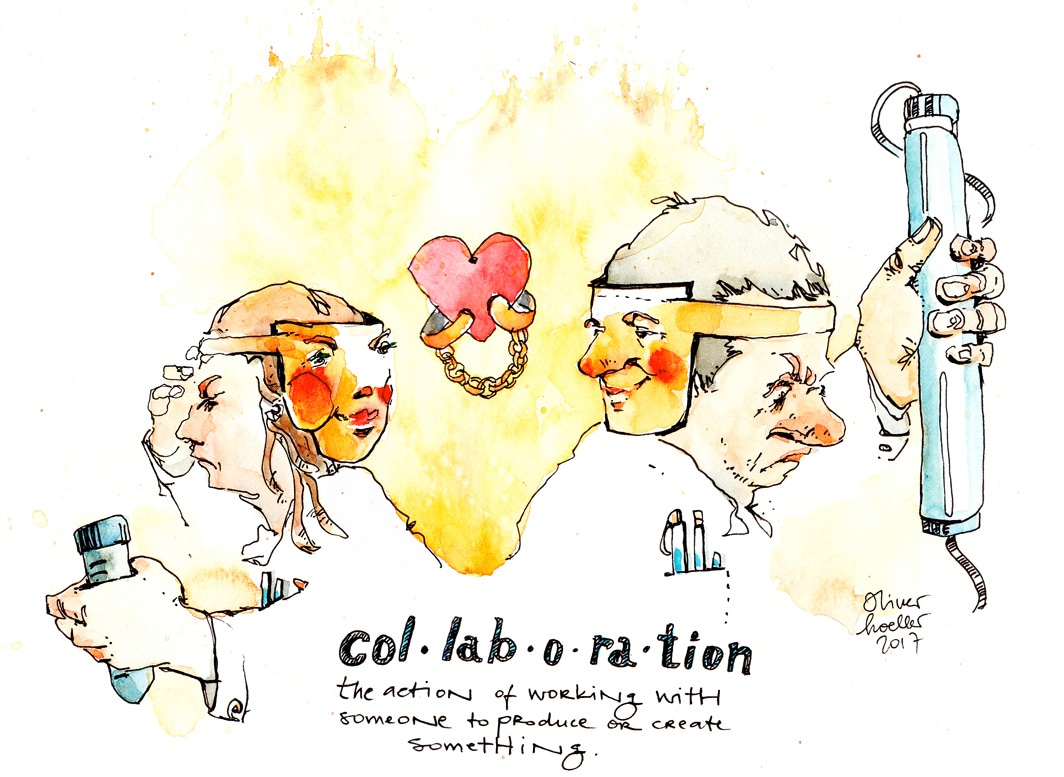

Science is big on collaboration. With such a variety of knowledge and expertise it’s crucial to get advice from, and work alongside, people who are specialists in a particular area. But while that sounds great on paper, it’s surprisingly hard to achieve in practice. Collaborations are actually relationships in a real sense, and like real relationships, they’re very difficult to get right. In fact, many scientific collaborations bear more resemblance to an arranged marriage than a love match.
And not just arranged marriages either. Pretty much the entire spectrum of human relationships can be observed in the dynamics of inter-group scientific interaction. There are polygamists, serial monogamists, divorces (amicable and contentious), infidelities, one-night stands, enduring loves, and of course, a number of groups who just…prefer to do it on their own.
We shouldn’t look down on the singletons. They might be frustrated romantics who understand better than most how hard it is to get a collaboration right, and are wary of making the commitment. They might have got burned in a bad collaboration, lost confidence, and withdrawn into themselves. They might prefer doing things on their own so that they’re in full control and not dependent on others. They might think they’re too good for their suitors. Or maybe they simply can’t find that special group somewhere that shares their interests.
Whatever the reasons, there’s no doubt that it’s hard work making a collaboration a fertile one. You’ve got to be able to listen to the other group. Understand if things are not going well for them or if they’re taking longer than expected. Be sympathetic if they’re not in the mood and if necessary, give them the space and time they need. Like any relationship, the key to a successful collaboration is good communication built on a foundation of mutual respect (and yes, maybe even some affection).
The reason, of course, is that while science itself is – theoretically – an objective and often arduous trek towards the truth, scientists themselves are people. And people are people no matter if they wear a white coat or red cassock. As such, while we might strive to maintain some level of professional detachment and decorum, it’s pretty much impossible to initiate a collaboration without messy things like feelings and personalities getting involved.
It’s for precisely this reason that the arranged marriages make such a sad spectacle. In collaboration terms, arranged marriages are the result of putting abstract benefits ahead of personal quirks. The two groups involved have good scientific reasons for entering into a mutual dependency, but if the personal spark isn’t there then it’s a real effort to make it bear fruit. There’s a mutual need for the other’s expertise, but without some level of personal attraction it makes for a very dry and low-temperature interaction.
That’s not to say that they’re doomed to failure. Not every happy relationship is productive, and not every productive relationship is happy – but the happy ones are easier to sustain.
So when you meet a possible collaborator, don’t say “yes” and jump into bed too easily. The last thing you want is some kind of awkward and fumbling collaboration that leaves you both searching for the exit (“This was a terrible mistake, can we please just try to forget it ever happened?”). Being promiscuous may mean you spread yourself too thinly, and you don’t want to have acquired a bad reputation when that special group that’s just right for you comes your way. Don’t give up on true love.
It’s better to find someone you like and then think of ways to collaborate, than to meet someone you feel you should collaborate with but then have to try to like. Get together before you get it on.
So, to all the lovers, the cheaters, the daters, the haters, the players, the nay-sayers, the fakers, the heart-breakers, the teasers, the pleasers, and the make-believers – TIR loves you all! But be careful how you love each other.
Originally posted on TIR - HERE.





Join the FEBS Network today
Joining the FEBS Network’s molecular life sciences community enables you to access special content on the site, present your profile, 'follow' contributors, 'comment' on and 'like' content, post your own content, and set up a tailored email digest for updates.
Nice article! Let me add one consideration. Marriages, arranged or otherwise, are not judged by peer review experts. When husband and wife sign a letter or a postcard it is immaterial whose name comes first. Not so in collaboration papers. Competitive access to research funding and publish or perish politics may kill collaborations.